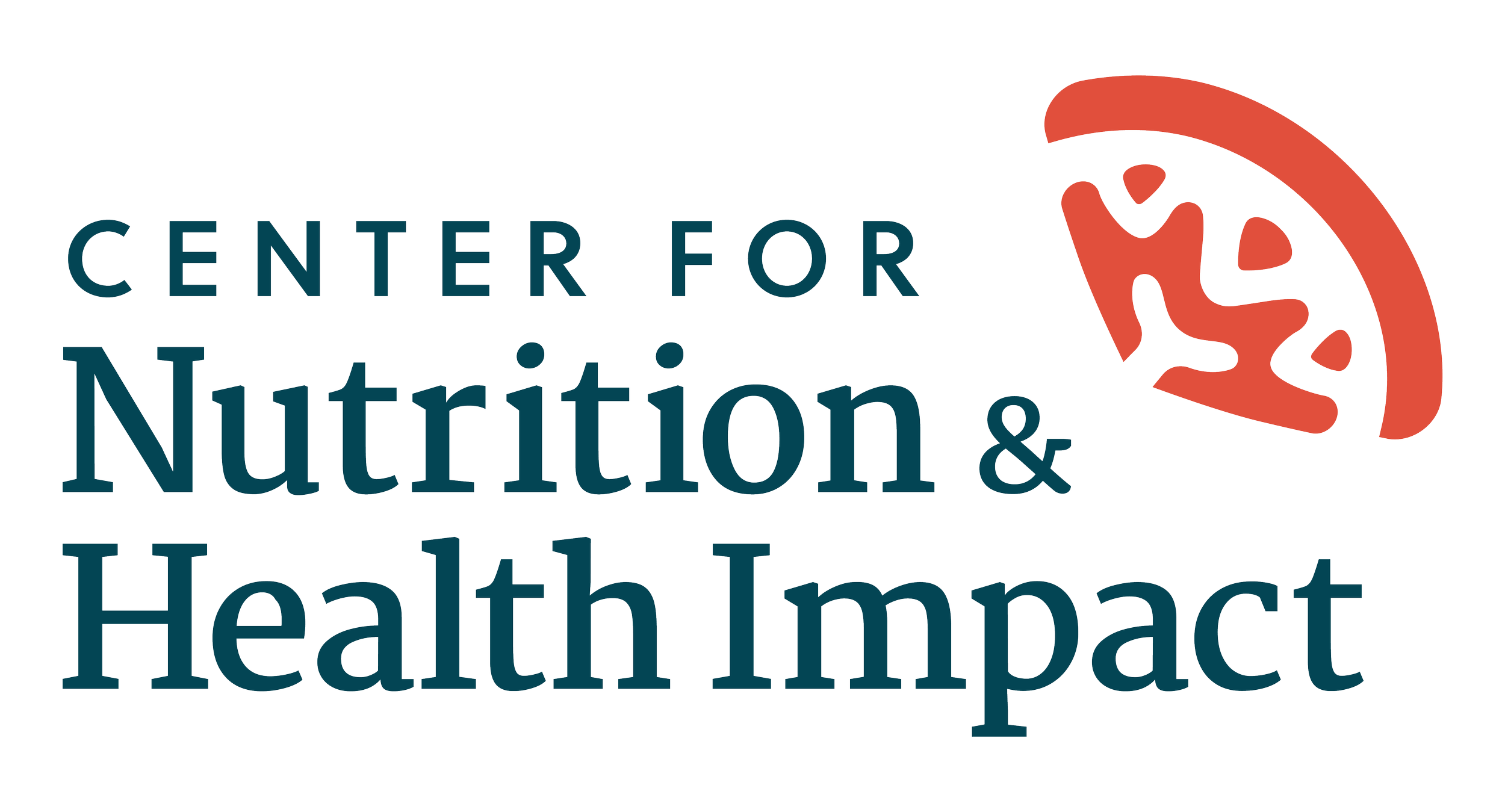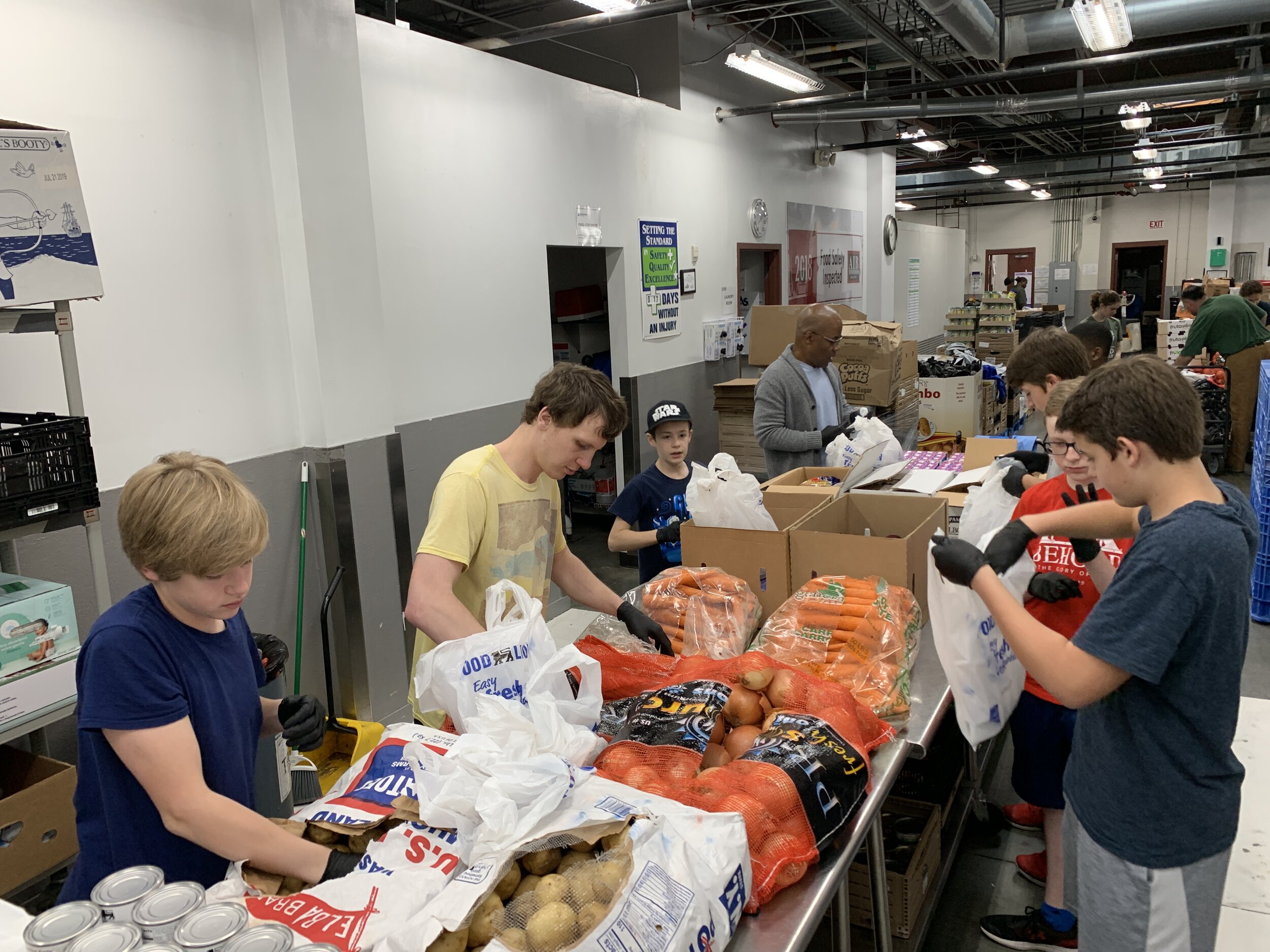Inter-Faith Food Shuttle
Raleigh, North Carolina
Evaluate the existing Grocery Bags for Seniors program and the Seniors Eating Well pilot. The funding and partnership from the Rooted in Evidence grant will help Food Shuttle evaluate if the program is meeting its goals, best serving participants and having the desired impact on health and diet.
Funded Program
Rooted in Evidence grantee, Food Shuttle, is using grant funds for their Grocery Bags for Seniors Program and the Seniors Eating Well pilot. With twenty percent of older adults struggling with hunger and food insecurity in North Carolina, Grocery Bags for Seniors helps fill a great need. The program serves almost 2,000 local low-income seniors with quality, nutritious food to help alleviate food insecurity and malnutrition risk. The bags are delivered monthly and provide approximately 10 meals. The program also creates community and lessens the impact of isolation common amongst senior groups through a door-to-door distribution model. Direct food provision is augmented with recipe cards, storage and use tips, nutrition information and healthy eating workshops provided at select sites. In addition, Food Shuttle will pilot pairing the program with nutrition education workshops based on the Seniors Eating Well curriculum from Penn State Extension. The pilot will engage more than 100 seniors to study the impact of nutrition education combined with provision of key food supplies. A series of one-hour lessons, Seniors Eating Well covers topics ranging from heart healthy meals to whole grains, dietary fat and cooking with fresh herbs.
Q&A with Food Shuttle’s Director of Community Health Education Pushti Patel, MSPH:
What about the Grocery Bags for Seniors Program excites you most?
Serving older adults in our community – they don’t get as much attention from other programs and organizations, but they are one of the most vulnerable populations at risk for food insecurity. Our Grocery Bags for Seniors program addresses barriers and challenges that older adults often face, such as limitation to transportation and social isolation, by going to the point of need. We are also mindful of the unique health challenges that older adults often face in managing their chronic health conditions by providing foods that are low in fat, sodium and sugar. Our bags often include produce and items that are easy to prepare. This program provides access to fresh foods suited to this demographic’s needs and empowers seniors with the knowledge and skills to make nutritious food choices at monthly Seniors Eating Well classes.
What do you want to know most about the Grocery Bags for Seniors Program and its impacts?
Some of the questions that we hope answer about the Grocery Bags for Seniors Program and its impact are:
Do seniors who receive our bags value them for content and quality?
How can Food Shuttle improve quality of the bags based on recipient feedback?
Is receiving one bag a month filling the hunger gap? Should we increase the number of deliveries?
Do Food Shuttle volunteers enjoy their experience contributing to the Grocery Bags for Seniors program?
Has the program increased awareness of senior hunger?
What will data collection entail over the next six months?
Our evaluation involves collecting data from distribution site managers, volunteers that deliver grocery bags monthly, and our grocery bag recipients. Thus far we have received 17 site manager surveys representing 75% of our sites. We are surveying volunteers October through March to gain their perspective as well, having collected 24 volunteer surveys to date. As of November 15, we have completed feedback events at six distribution sites and received over 100 completed surveys from recipients. We plan to at least double the number of completed recipient surveys by March with additional feedback events at other distribution sites. We have our first focus group scheduled in December, a second one in January, and we hope to schedule two additional focus groups with Grocery Bag recipients in the spring.
What was your biggest take away from the Omaha kick-off meeting?
We would like to thank GSCN for hosting the kick-off meeting in Omaha. It was a pleasure to meet the cohort, but also learn about innovative programs that various Feeding America members are implementing. The conversations with partners reinstated the importance of evaluation in measuring impact in food banking, but also shifting the focus on delivering nutritious food. For the Food Shuttle staff, the tools provided by GSCN staff on research methodology and data collection were the biggest takeaways. It helped us create a framework to set-up an evaluation plan as well as identify core goals and objectives for evaluating the Grocery Bags for Seniors program. We intend to apply a similar framework to evaluate our other programs.
How has GSCN’s evaluation expertise and technical assistance benefited your organization so far?
GSCN has been a great resource for us as we’ve embarked on this comprehensive program evaluation. GSCN’s guidance has enabled us to determine the most appropriate methodology and to craft the most valid data collection tools, giving us confidence that the results we obtain will be relevant and useful.
What are you hoping to do with the results of the evaluation? What is the next step?
The results of the evaluation will allow us to determine if our program is meeting its goals and serving the needs of the community. We aim to adjust operations to better achieve goals and better meet the needs expressed by recipients. Additionally, the results will provide us with data that we can share with our donors and stakeholders, can use to secure additional funding, and expand our annual budget for the program. Overall, the evaluation results will allow us to better serve the seniors in our community based on their perceived needs and interests.
About Food Shuttle
The Food Shuttle is a member of Feeding America and distributes nearly six million pounds of food per year, 35% of which is fresh produce. Food Shuttle serves seven counties of central North Carolina. Several programs focus on the lack of access to healthy food and lack of income to purchase it, including grocery bags for seniors, backpack buddies and school pantries, community health education and mobile markets, and school and community gardens.
Mission: Pioneers innovative, transformative solutions designed to end hunger in our community.



